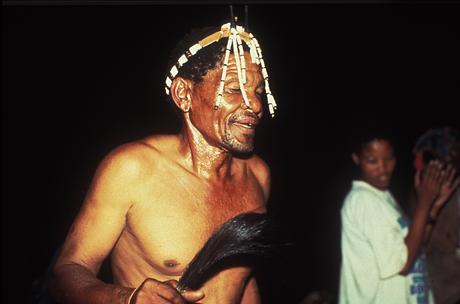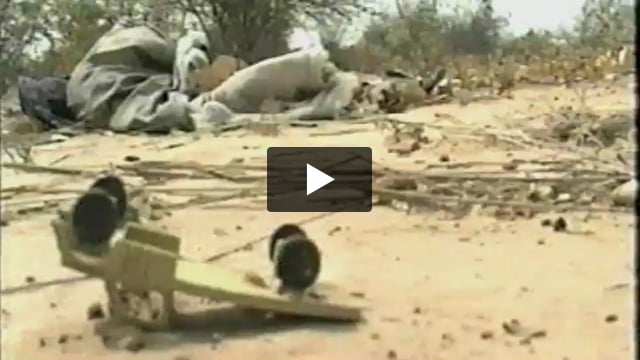UN condemns Botswana's treatment of Bushmen
December 11, 2014
 © Philippe Clotuche/Survival
© Philippe Clotuche/SurvivalThis page was last updated in 2014 and may contain language which is now outdated.
The United Nations’ Special Rapporteur on cultural rights has condemned Botswana’s treatment of Africa’s last hunting Bushmen following her visit to the country last month.
Farida Shaheed voiced concerns over restrictions placed on Bushmen over access to their ancestral homeland in the Central Kalahari Game Reserve, as well as the government’s contradictory policy of evicting the Bushmen in the name of wildlife conservation, while pursuing mining and tourism inside the reserve.
“The fear amongst affected people is that once the elders have passed away, nobody will be entitled to live in the reserve. Furthermore, insisting that people relocate outside the reserve for wildlife conservation purposes is at odds with allowing the continuation of mining and tourism activities,” Ms Shaheed wrote in her report.
She demanded that the Botswana government “clarify the matter.”
Despite a landmark High Court ruling in 2006 which confirmed the Bushmen’s right to live and to hunt inside the reserve, most Bushmen are forced to apply for restrictive permits to enter – including children when they reach the age of 18.
Bushman spokesperson Jumanda Gakelebone told dpa, the German press agency, “If we cannot return to our ancestral lands, there will soon be no Bushmen left in Botswana.”
The Bushmen are accused of “poaching” because they hunt their food, and face arrest and beatings, torture and death, while fee-paying big-game hunters are encouraged to hunt in private game parks.
Bushman leader Roy Sesana recently asked Prince William – who heads the "United for Wildlife" anti-poaching initiative – for help in recognizing that Bushmen hunters are not poachers.
The Botswana government holds deep contempt for the Bushmen’s hunter-gatherer way of life. In a recent state of the nation address, Botswana’s President Ian Khama emphasized the government’s work with community organizations to “facilitate [the Bushmen’s] transition from hunting to photographic tourism.”

President Ian Khama will host United for Wildlife’s inter-governmental “Conference on Illegal Wildlife Trade” in Botswana in March 2015. The president, however, continues to act illegally in his persecution of the Bushmen, and in contravention of the High Court ruling, by denying them the right to live freely on their land and to hunt game animals there.
Survival International, the global movement for tribal peoples’ rights, has documented over 200 cases of violent abuse of the Bushmen at the hands of wildlife officers and police and has called for a boycott of Botswana tourism until the Bushmen are allowed to live in peace on their ancestral homeland.
Survival’s Director Stephen Corry said today, “As Khama needlessly drags the country’s reputation through the mud over the oppression of the Bushmen, communities continue to suffer the effects of the president’s prejudice. This latest government address perfectly illustrates his contempt – to Khama the Bushmen are only good for tourists’ titillation.”




